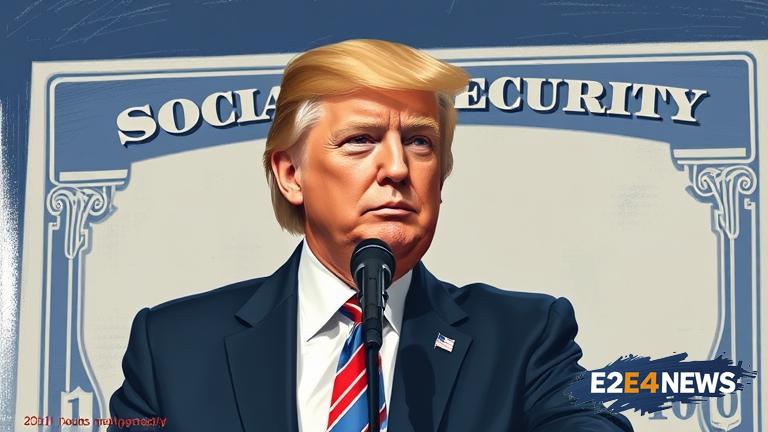The Trump administration’s recent proposal to introduce new savings accounts has ignited a fierce debate over the potential privatization of Social Security. Proponents of the plan argue that it will provide individuals with greater control over their retirement savings, allowing them to make their own investment decisions and potentially earn higher returns. However, opponents warn that privatization could undermine the safety net provided by Social Security, leaving vulnerable populations such as the elderly and disabled without a reliable source of income. The proposal has been met with skepticism by many Democrats, who argue that it is a thinly veiled attempt to dismantle the Social Security system. They point out that the plan would require significant cuts to Social Security benefits in order to fund the new savings accounts, which could have devastating consequences for those who rely on the program. On the other hand, Republicans argue that the plan would give individuals more flexibility and autonomy over their retirement savings, allowing them to make their own decisions about how to invest their money. The debate over Social Security privatization is not new, with proponents arguing that it would increase efficiency and reduce costs, while opponents warn that it would increase risk and uncertainty for beneficiaries. The introduction of new savings accounts has added a new layer of complexity to the debate, with some arguing that it could be a step towards privatization. Others argue that it is a necessary step to ensure the long-term solvency of the Social Security system, which is facing significant funding challenges in the coming years. The proposal has also sparked concerns about the potential impact on low-income individuals, who may not have the financial resources to take advantage of the new savings accounts. Additionally, there are concerns about the potential for Wall Street firms to profit from the new accounts, potentially at the expense of beneficiaries. The debate over Social Security privatization is likely to continue in the coming months, with both sides presenting their arguments and trying to sway public opinion. The outcome of the debate will have significant implications for the future of Social Security and the millions of Americans who rely on it. The proposal has also raised questions about the role of government in providing a safety net for citizens, with some arguing that it is a fundamental responsibility of government to ensure that citizens have access to a basic level of economic security. Others argue that the private sector is better equipped to provide retirement savings options, and that government should play a more limited role. The introduction of new savings accounts has also sparked a debate about the potential for other entitlement programs to be privatized, such as Medicare and Medicaid. The proposal has been met with opposition from many advocacy groups, who argue that it would undermine the safety net and leave vulnerable populations without access to essential services. The debate over Social Security privatization is a complex and multifaceted issue, with both sides presenting compelling arguments. Ultimately, the outcome of the debate will depend on a variety of factors, including public opinion, political will, and the ability of policymakers to craft a solution that balances competing interests and priorities. The proposal has also raised questions about the potential impact on the economy, with some arguing that it could lead to increased economic growth and job creation, while others warn that it could lead to increased inequality and instability. The debate over Social Security privatization is likely to be a major issue in the upcoming election, with both parties presenting their visions for the future of the program. The outcome of the debate will have significant implications for the future of Social Security and the millions of Americans who rely on it.
